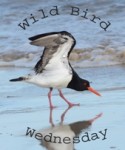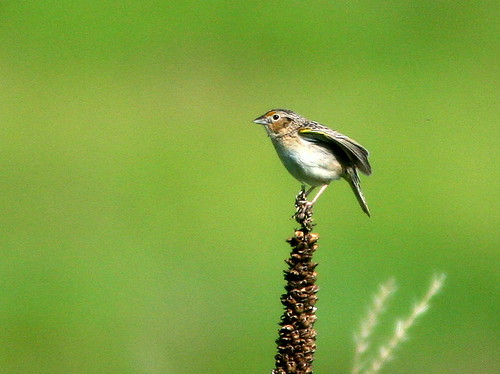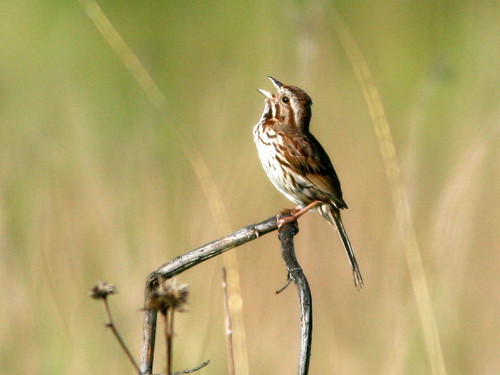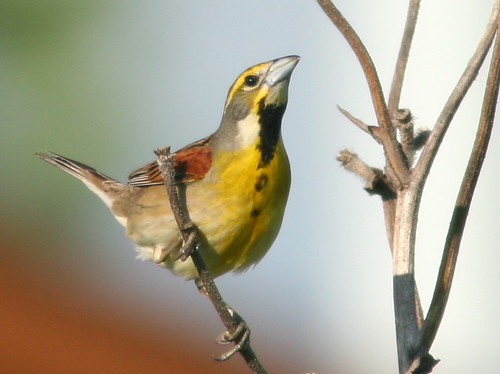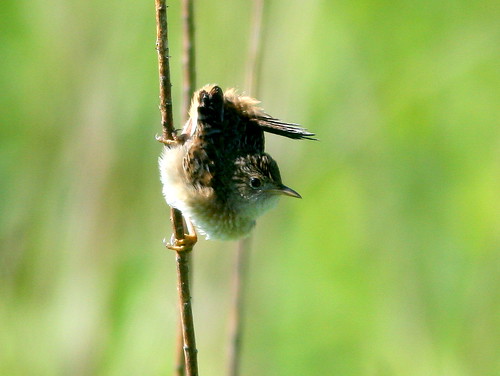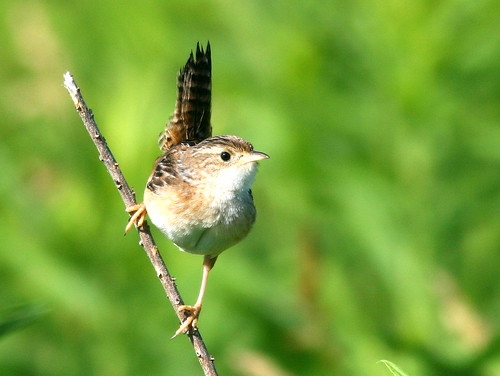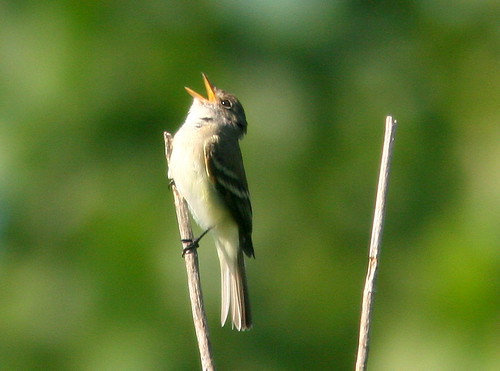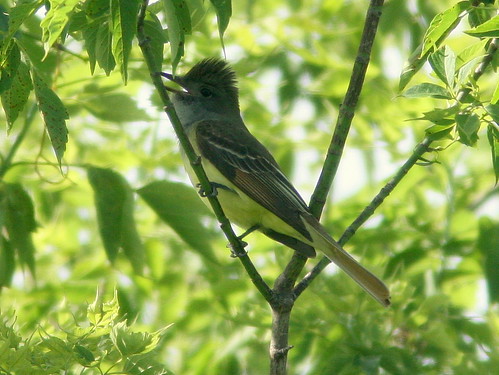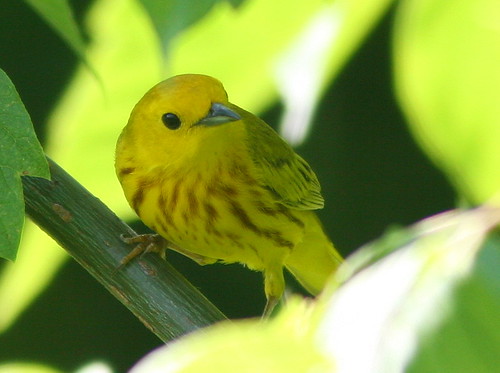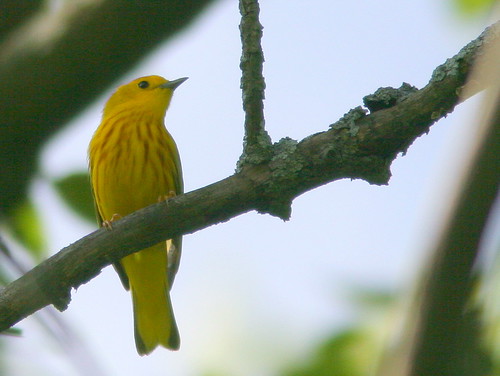Mary Lou and I had time for one final bird walk before our trip to celebrate our 50th Wedding Anniversary with all our children and grandkids (plus a great-grandson in the womb!).
Once again, before departing from Illinois, we searched for Henslow’s Sparrows at Nelson Lake/Dick Young Forest Preserve in Kane County, Illinois. We failed to hear a single “Ch-Leep” song along the path that climbs the hill where at least four pairs nested last spring. As I mentioned, it may be that the controlled burns have fragmented the former territory of this threatened species. They prefer to nest deep in the center of favorable habitat, which generally means a prairie that was burned between 2 to 5 years previously. They wait for the ground litter to build up, but will abandon an area where there are many emerging shrubs and saplings and too great an accumulation of dried grasses on the prairie floor. Then again, maybe they have moved to less accessible areas, away from the foot paths
We were pleased to find that many Grasshopper Sparrows had returned from the south; some ran across the path in front of us:
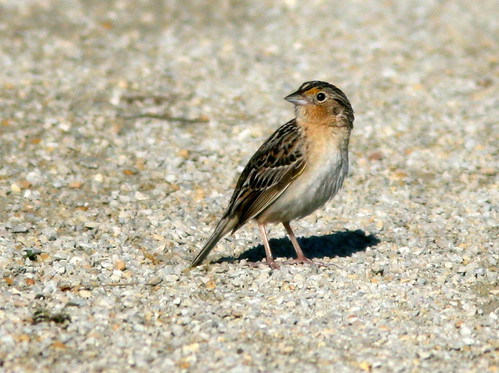
Note the proportionally long legs of this sparrow:
This Grasshopper Sparrow posed on a dried mullein stalk:
The numerous American Goldfinches also extracted seeds from the stalks:
I never fail to be impressed by the exuberant vocalization of the Song Sparrow:
Dicksissels have returned to the prairie:
There must have been over twenty singing male Dicksissels along the first mile of the north path through the grassland. The amount and pattern of the males’ black and yellow breast markings varies quite a bit: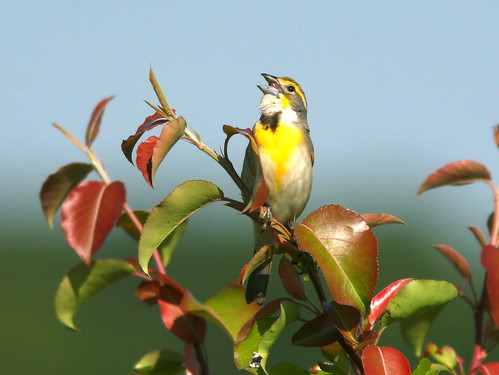
They are one of my favorite birds. This one landed briefly on the path, and I caught it just as it was ready to fly off: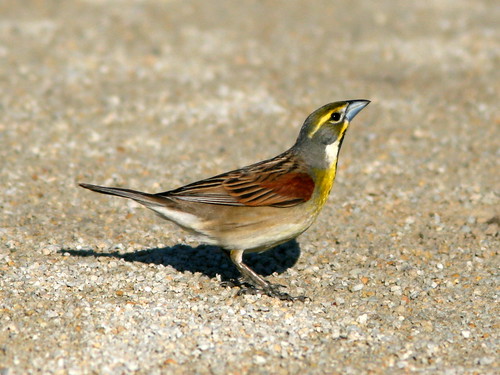
I loved this Dicksissel’s pose and the color: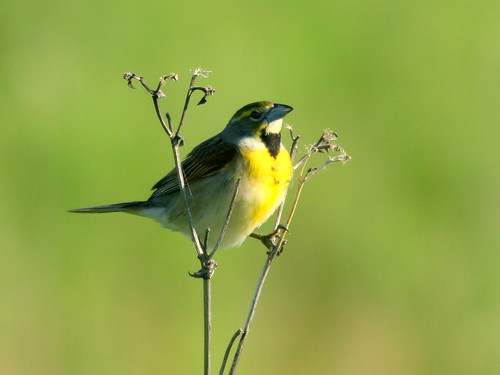
Sedge Wrens were singing in the tall grass. This one was interacting with another– I was not sure whether it was an aggressive display or perhaps part of a courtship or pair bonding ritual:
These little wrens can be difficult to photograph, as they are so active. With patience, I may catch one on an exposed perch:
Just after I took the above shot, the Sedge Wren launched into flight:
We first heard, then spotted two Willow Flycatchers.
I caught this one during the second syllable of its “Fitz-Byew” song:
Capturing this Great Crested Flycatcher in flight involved just dumb luck:
Here it roosts in a rather distant treetop:

The severe backlighting washed out most of the rufous color on the Great Crested Flycatcher’s wings and tail:
Yellow Warblers were fairly abundant in the trees along the south side of the Preserve, but they have a habit of hiding behind the leaves:
This Yellow Warbler briefly perched out in the open:







